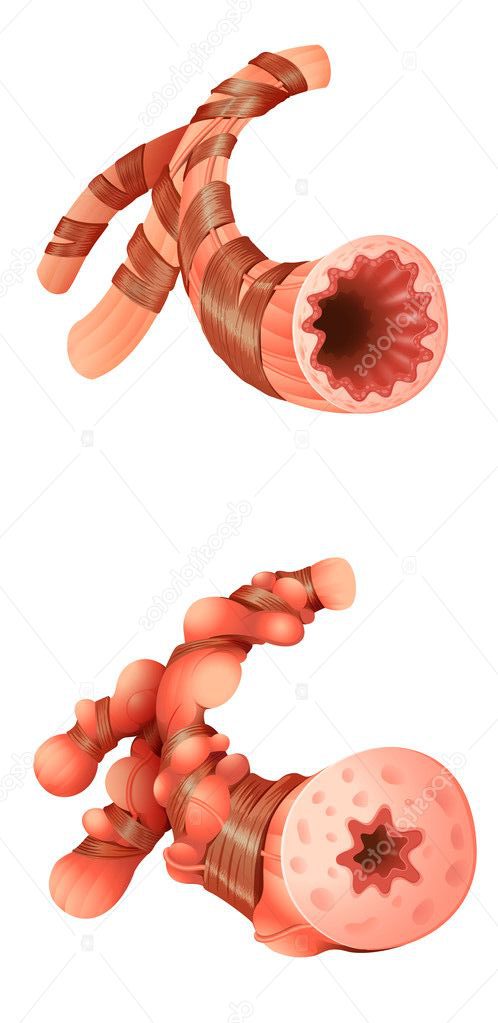
Asthma is a disease of the airways that can cause coughing, make it hard to breathe or both. There is not one universal cause for asthma, but asthma is often associated with allergic diseases such as rhinitis (nasal congestion and drainage) as well as eczema (an allergic skin condition). Asthma is characterized by inflammation in the walls of the airways that leads to swelling and narrowing of the airways. The muscles around the airways may also constrict leading to further airway narrowing. Airway narrowing leads to difficulty with breathing. Asthma symptoms range from mild and intermittent to severe and persistent. In its most severe form, an asthma attack can be life threatening due to severe constriction of the airways and inability to breathe. The common symptoms of asthma include cough, shortness of breath, wheezing or noisy breathing and chest tightness. These symptoms can be made worse by exposure to asthma “triggers” – things like dust, mold, pollen, pets, cigarette smoke, bacterial or viral illness, extreme weather and exercise. Sometimes simple avoidance of a trigger is enough to control asthma symptoms. Many patients will require medication treatment in addition to trigger avoidance in order to bring asthma symptoms under control. The most common medications used to treat asthma are inhaled medications delivered directly to the airways where they are needed to work. Some patients will also require pill therapies or injections to bring asthma under control.

